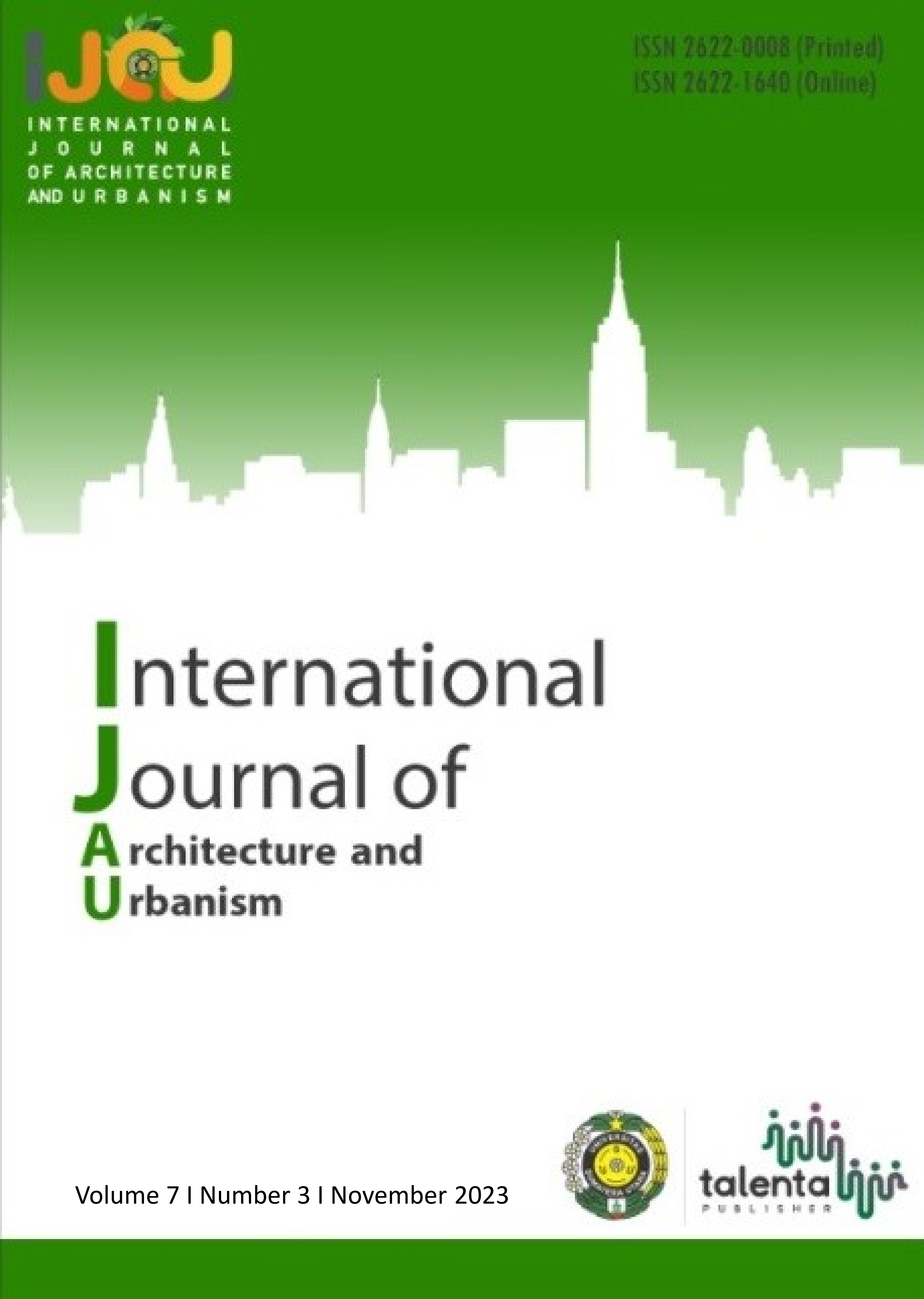NeoHada: Adaptive Urban Building based on Solar-Piezoelectric and Rooftop Farming to Realize Resilient Cities in Preventing Floods and Food Crises
DOI:
https://doi.org/10.32734/ijau.v7i3.14239Keywords:
Solar-Piezoelectric, Resilient Cities, SDGs, NeoHadaAbstract
Urban development, driven by increasing population density, significantly impacts the physical environment, leading to issues such as flooding, food crises, and energy shortages. In response to these challenges, particularly in the context of urban flooding in Indonesia, the implementing team proposes the NeoHada solution. NeoHada is an adaptive design concept that integrates Solar-Piezoelectric technology and Rooftop Farming to create resilient and sustainable cities. This concept is based on three key principles: Climatic Architecture, Energetic Architecture, and Productive Architecture. The principle of Climatic Architecture is implemented through a Rain Harvesting System, where building rooftops serve as rainwater reservoirs to prevent flooding and provide an alternative water source. The Energetic Architecture principle combines solar panels and piezoelectric technology to generate independent electrical energy, alternating between rainy and dry seasons. The Productive Architecture principle emphasizes the development of rooftop farming as a means of achieving urban food self-sufficiency. The NeoHada solution is expected to realize the Sustainable Development Goals (SDGs) related to Zero Hunger, Clean Water and Sanitation, Affordable and Clean Energy, Sustainable Cities and Communities, and Climate Action. By integrating innovative technology and adaptive design, NeoHada aims to mitigate the negative impacts of urban growth and promote city resilience against various disaster and crisis scenarios. It is hoped that this solution will serve as a guide for the development of cities in Indonesia towards sustainable sustainability.

Downloads
Published
Issue
Section
License
Copyright (c) 2023 International Journal of Architecture and Urbanism

This work is licensed under a Creative Commons Attribution-ShareAlike 4.0 International License.

.png)










